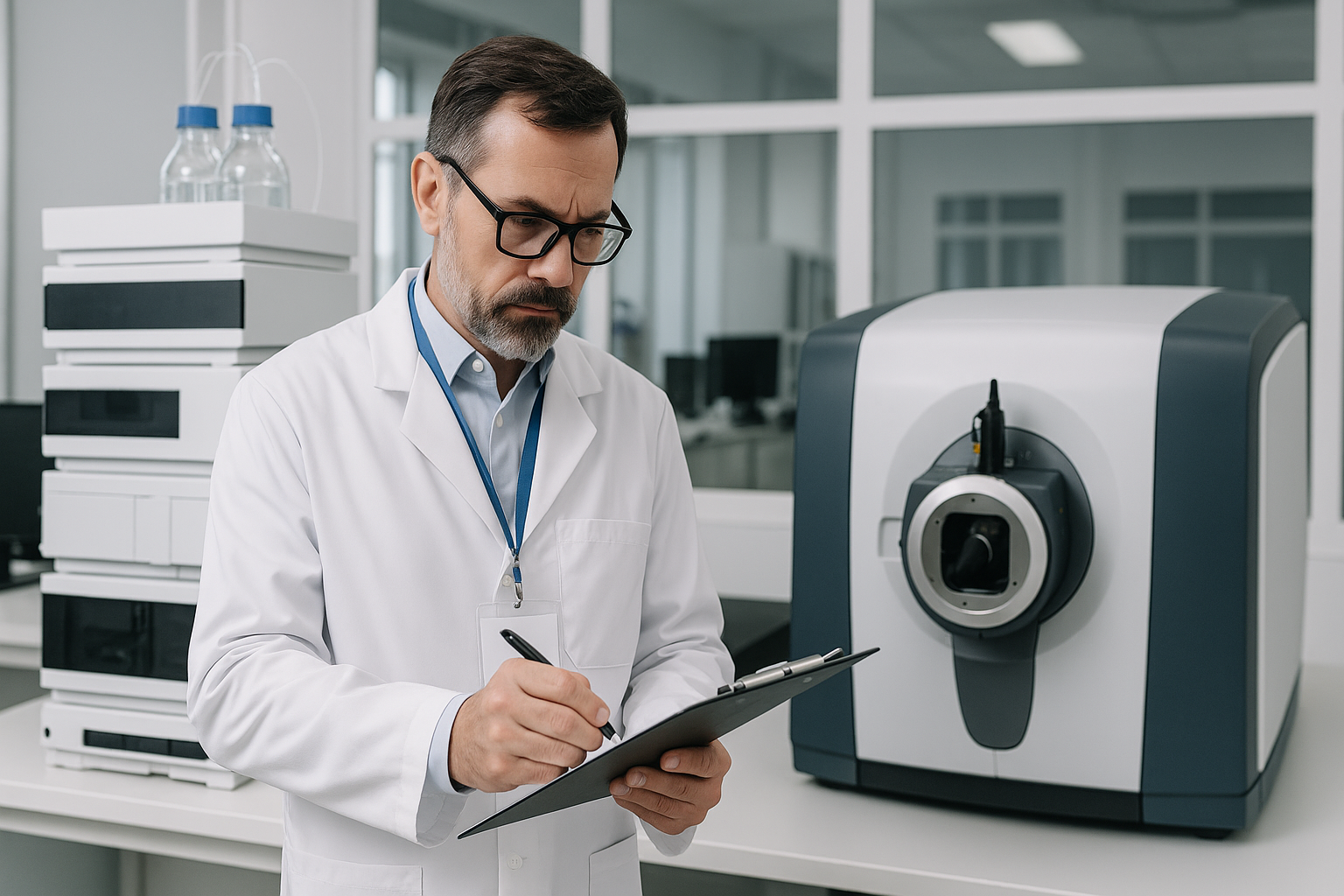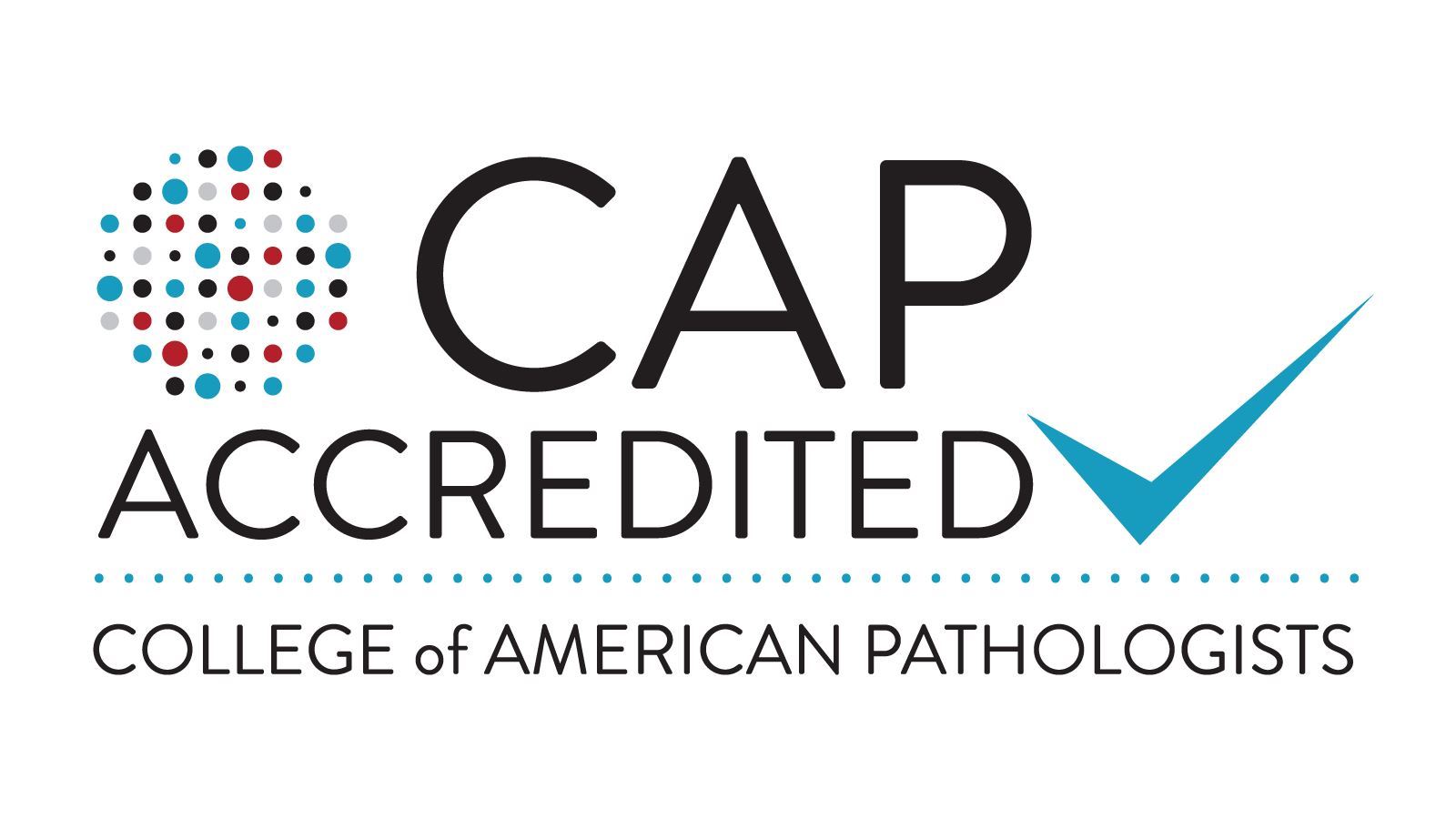
When choosing a health testing company, you'll often see mentions of certifications and accreditations. But what do these actually mean for the accuracy and reliability of your test results? At HealthieOne, our Gigantest laboratory holds both CLIA certification and CAP accreditation: two of the most stringent quality standards in clinical diagnostics. Let's explore why these credentials are crucial for your health testing.
Understanding CLIA Certification

CLIA stands for Clinical Laboratory Improvement Amendments, a set of federal regulatory standards that apply to all laboratory testing performed on humans in the United States. Our CLIA Identification Number is 21D2287503.
What CLIA Certification Means
CLIA certification isn't just a one-time achievement, it represents ongoing compliance with rigorous federal standards that cover:
- Personnel qualifications for all laboratory staff
- Quality control procedures for every test performed
- Proficiency testing to verify accuracy
- Patient test management and record keeping
- Quality assurance programs to maintain consistency
The CLIA Oversight Process
CLIA-certified labs like ours must:
- Meet strict personnel requirements: Our laboratory directors, technical supervisors, and testing personnel must have specific educational backgrounds and experience
- Undergo regular inspections: Federal or state inspectors evaluate our facilities, procedures, and records
- Participate in proficiency testing: We regularly analyze unknown samples to prove our testing accuracy
- Maintain detailed quality control records: Every aspect of our testing process is documented and monitored
The Significance of CAP Accreditation
CAP stands for College of American Pathologists, and their accreditation program represents the gold standard in laboratory quality assurance. Our CAP number is 9662090 (Laboratory/Gigantest/MD).
Why CAP Accreditation is Exceptional

While CLIA certification is mandatory for clinical labs, CAP accreditation is voluntary—which makes it even more meaningful. CAP accreditation demonstrates that we've voluntarily subjected ourselves to the most rigorous standards in the industry.
CAP accreditation covers over 1,900 specific requirements across:
- Pre-analytical processes: How samples are collected, handled, and prepared
- Analytical procedures: The actual testing methodologies and quality controls
- Post-analytical activities: Result reporting, interpretation, and follow-up
- General laboratory operations: Staff competency, safety, and management systems
The CAP Inspection Process
CAP accreditation involves:
- Comprehensive on-site inspections every two years by teams of practicing pathologists and laboratory scientists
- Peer review process where experts in the field evaluate our practices
- Continuous improvement requirements to address any identified areas for enhancement
- Ongoing monitoring of our compliance with evolving standards
What These Certifications Mean for Your Test Results
Proficiency Testing: Proving Our Accuracy
Both CLIA and CAP require us to participate in proficiency testing programs. Here's how this works:
- We regularly receive blinded samples where we don't know the true concentrations of the markers we're testing
- We must analyze these samples using our standard procedures
- Our results must fall within tight acceptable ranges determined by statistical analysis of results from laboratories worldwide
This process simulates real clinical testing conditions and ensures consistent performance
Regular Inspections: Ongoing Quality Assurance
Our laboratory undergoes routine inspections where every aspect of our testing process is scrutinized:
- Sample handling procedures: How we receive, process, and store your blood samples
- Equipment calibration: Ensuring our instruments are accurately calibrated and maintained
- Staff qualifications: Verifying that our personnel have the required training and competency
- Quality control processes: Reviewing our daily quality control procedures and results
- Documentation practices: Examining our record-keeping and result reporting systems
Meeting Hospital-Grade Standards
These certifications mean that every test result we report must meet the same accuracy standards as major hospital laboratories. When you receive your HealthieOne results, you can trust that they've been analyzed using the same rigorous standards applied at:
- Johns Hopkins Hospital
- Mayo Clinic
- Cleveland Clinic
- Any other major medical center
Advanced Technology, Same Rigorous Standards: Metabolomics: Scientific Advancement, Not Shortcuts
Our ability to analyze over 200 biomarkers from minimal blood volumes isn't a compromise in quality, it's a scientific advancement that still adheres to the same rigorous standards as conventional laboratories.
Our LC-MS/MS metabolomics technology allows us to:
- Extract more information from smaller samples
- Provide insights into metabolic pathways not visible through traditional testing
- Deliver comprehensive health assessments with unprecedented detail
Validation of Advanced Methods
Every analytical method we use must be:
- Validated according to CLIA and CAP standards
- Proven accurate through proficiency testing
- Continuously monitored for precision and reliability
- Documented with complete quality control records
The Difference Between Certified and Non-Certified Labs
Why Certification Matters
Many at-home testing companies use uncertified laboratories or laboratories certified only for basic testing. Here's why our full clinical laboratory certification matters:
- Certified Labs (like ours):
- Subject to federal oversight and inspection
- Required to participate in proficiency testing
- Must meet strict personnel and quality requirements
- Held to the same standards as hospital laboratories
- Non-Certified or Research-Only Labs:
- May not be subject to clinical standards
- No requirement for proficiency testing
- Limited oversight of quality control procedures
- Results may not be suitable for clinical decision-making
Real-World Impact on Your Health
When your test results influence health decisions, accuracy isn't optional—it's essential. Our certifications ensure that:
- Your results are reliable and can be trusted by you and your healthcare providers
- Abnormal findings are accurately identified so you can take appropriate action
- Normal results are truly normal so you don't worry unnecessarily
- Trend analysis over time is meaningful because of consistent accuracy
Transparency in Laboratory Operations: Verifying Our Credentials
We believe in complete transparency. You can independently verify our certifications:
- CLIA Database: Search for our ID 21D2287503 at the CMS CLIA database
- CAP Directory: Look up our accreditation #9662090 in the CAP Laboratory Directory
- State Licensing: Our Maryland laboratory license is also publicly verifiable
Ongoing Commitment to Excellence
These certifications aren't achievements we earned once—they represent our ongoing commitment to excellence:
- Annual proficiency testing to maintain our certification
- Biennial CAP inspections to maintain our accreditation
- Continuous quality improvement to exceed minimum requirements
- Staff training and development to maintain the highest competency levels
Beyond Compliance: Our Quality Philosophy
Exceeding Minimum Requirements
While CLIA and CAP set minimum standards, we strive to exceed them:
- Additional quality control measures beyond what's required
- Advanced staff training programs that go beyond minimum qualifications
- Investment in cutting-edge equipment that surpasses standard requirements
- Comprehensive quality assurance programs that cover every aspect of our operations
Patient-Centered Quality
Our quality systems are designed with you in mind:
- Sample integrity protection from collection through analysis
- Result accuracy verification through multiple quality checks
- Timely reporting without compromising thoroughness
- Clear communication of what our certifications mean for your results
The HealthieOne Advantage
Combining Innovation with Reliability
At HealthieOne, we've achieved something unique: we've combined cutting-edge metabolomics technology with the gold standard of laboratory quality assurance. This means you get:
- Advanced insights not available through traditional testing
- Proven accuracy through rigorous certification requirements
- Convenient at-home collection without compromising quality
- Comprehensive results you can trust for health decisions
Your Confidence is Our Priority
When you choose HealthieOne, you're not just getting innovative technology, you're getting results backed by the most stringent quality standards in clinical diagnostics. Our CLIA and CAP certifications aren't just formalities; they're your assurance that every aspect of your health testing meets the same standards trusted by physicians and hospitals nationwide.
Your health decisions deserve accurate, reliable information. Our certifications ensure that's exactly what you receive with every HealthieOne test.
Ready to experience laboratory testing that combines innovation with uncompromising quality standards? Learn more about HealthieOne Complete or contact our certified laboratory team with any questions about our testing processes.
- CMS CLIA Database. Available at: https://www.cms.gov/Regulations-and-Guidance/Legislation/CLIA
- CAP Laboratory Accreditation Directory. Available at: https://www.cap.org/laboratory-improvement/accreditation
- Maryland Department of Health - Laboratory Licensing. Available at: https://health.maryland.gov/

No comments yet. Be the first!